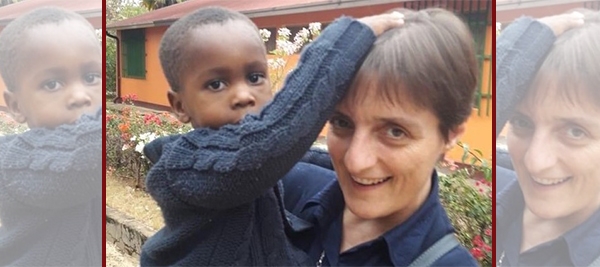The readings for this Fourth Sunday of Advent lead us to the threshold of the mystery of Christmas. Everything revolves around the fulfillment of the promise: God enters definitively into human history and reveals himself as the One who, in fidelity, makes a covenant with his chosen ones.
In a new way, God comes to take up residence, to dwell among us. He is with us always and the home to which he refers is his being with us in the different opportunities that he himself chooses. Israel's patient wait is fulfilled and a new horizon opens up before each person: the fulfillment of the promise.
The Gospel passage offers us wonderful news: in order to be born, God needs humanity, he needs a woman and her womb! And Mary, the young Daughter of Zion, makes herself available so that Love may take flesh and in confident abandonment conceives.
God needs me...you. He calls us to become His house, His womb... to carry Him within us, to guard Him and make Him grow with love. It is beautiful what God asks of us: not to be content with building a place for Him, but to become His house, His dwelling place.
Mary is a small womb that bears this invisible God, this Eternal Beauty, this faithful and tender Love that takes shape and confirms and guards us, precedes and consoles us, heals and saves us.
God comes in the fertility of a maiden who waits, who awaits the redemption of her wounded and lost people. God comes, for whom "nothing is impossible." God fulfills this promise.
This miracle is also possible in us if we make ourselves available, and if we abandon ourselves to the unpredictability of grace.
The Gospel again suggests to us that, if we want to seek God, we must do so here, in this life, simply by living with awareness because to make Himself present, He chose the everyday life of Nazareth.
Life then acquires meaning if we pay attention to what is small, if we bring out the sweetness of the detail, the fineness of the trace, the thoughtfulness of hiddenness.
The evangelist Luke also suggests that God avoids the noise of the temple; he prefers the peripheries of the world: he chooses Galilee, in the extreme north of the Holy Land because he is attracted by the little ones, the poor, the inhabitants of the peripheries.
We speak very often of existential peripheries as places where the presence of God seems obscured and where there is a need for the light of the Gospel, these ever closer places that question us because they are spaces of exclusion. They are also present in our communities, in the depths of our hearts.
Then we discover why Jesus prefers the peripheries: because God enters history from below, he makes a covenant with the poor.
Pope Francis, in his Encyclical Fratelli tutti (n.234) says again, "It is only closeness that makes us friends and allows us to deeply appreciate the values of the poor. The option for the poor must lead us to friendship with the poor."
We can ask ourselves this week: In this pandemic context, what is the periphery that I am called to inhabit? What poverty must I embrace?
Let us make our own the words of this Sunday’s Entrance Antiphon: "Let your dew drop down from on high, O heavens, and from the clouds let the Righteous One descend to us; let the earth be opened and bring forth a Savior."
Yes, Lord, may the earth of our hearts be opened, may space be created to welcome you in this unusual Christmas. May Mary, your Mother, take us by the hand and help us to cleanse our hearts of everything that prevents us from becoming your dwelling place.
Have a good journey…
Saturday, 26 December 2020 11:17
Fourth Sunday of Advent
Published in
News-UK

